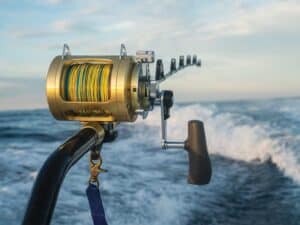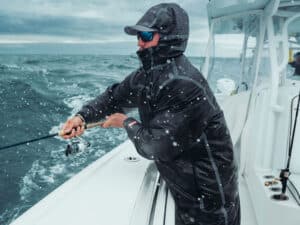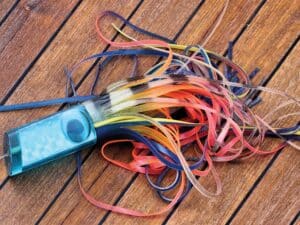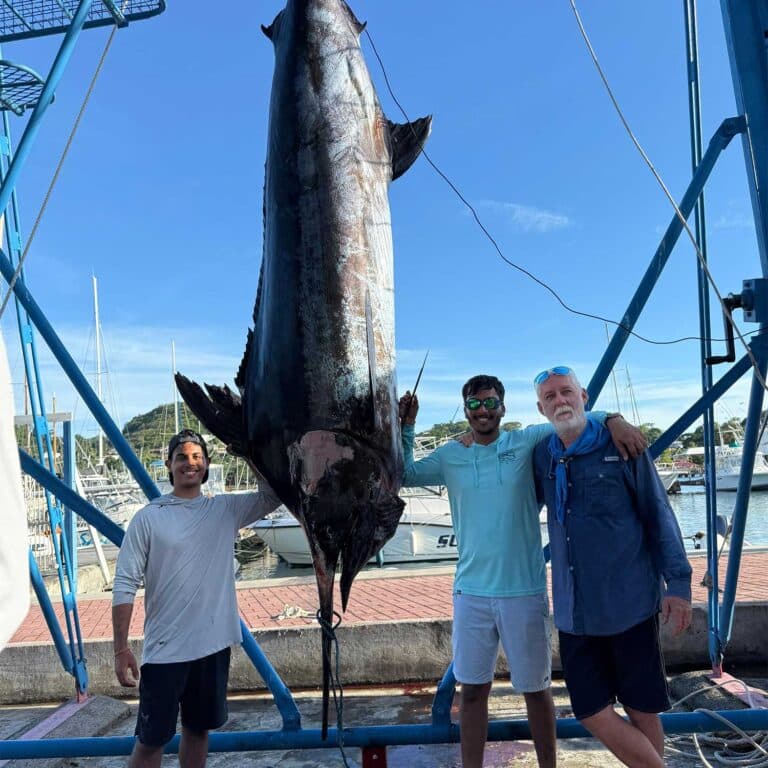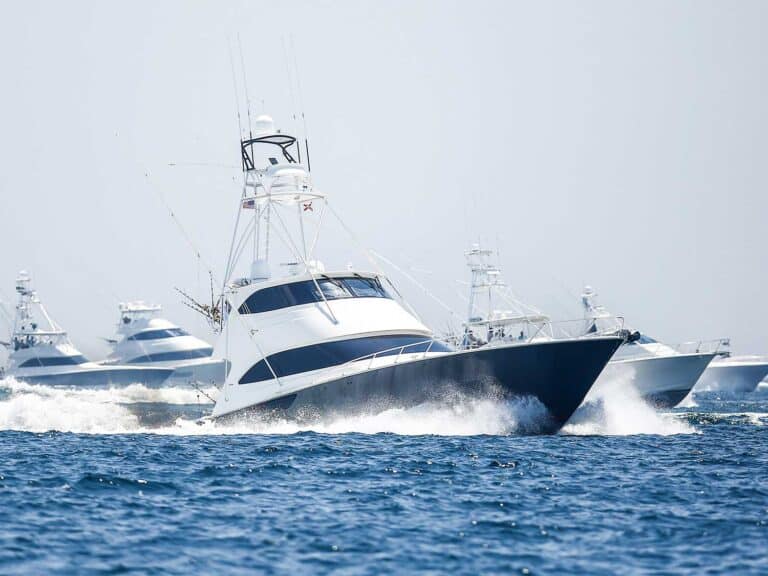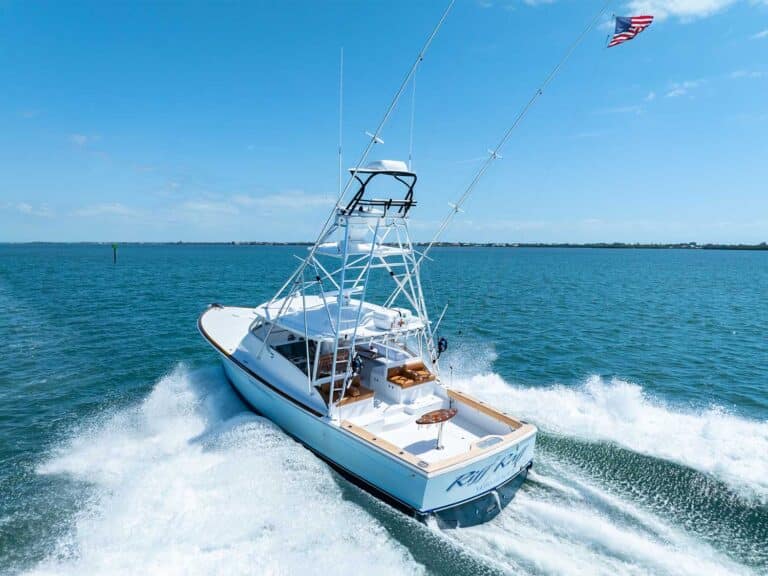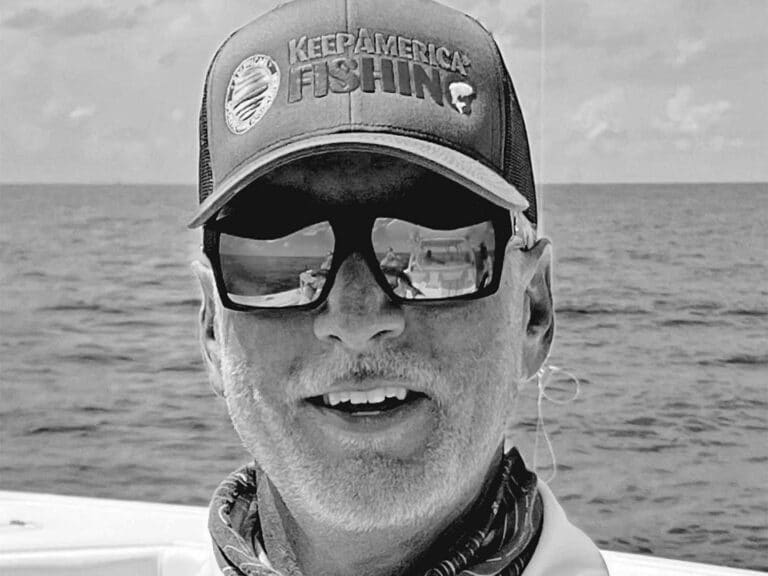As one of the owners of Fathom Offshore, Keith English was probably working on the research and development of your favorite long-rigger lure somewhere in the Caribbean long before it hit the shelves of your local tackle store. English and his 68-foot Wanchese, Click Through, have been household names on the international marlin-fishing circuit for years. The crew has an impressive tournament record and an equally inspiring travel schedule. And as chairman of The Billfish Foundation, English is also keen on conservation. He started a tidal wave of responsibility in Gulf Coast tournaments, holding teams to a higher level of accountability for the fish they decide to take.
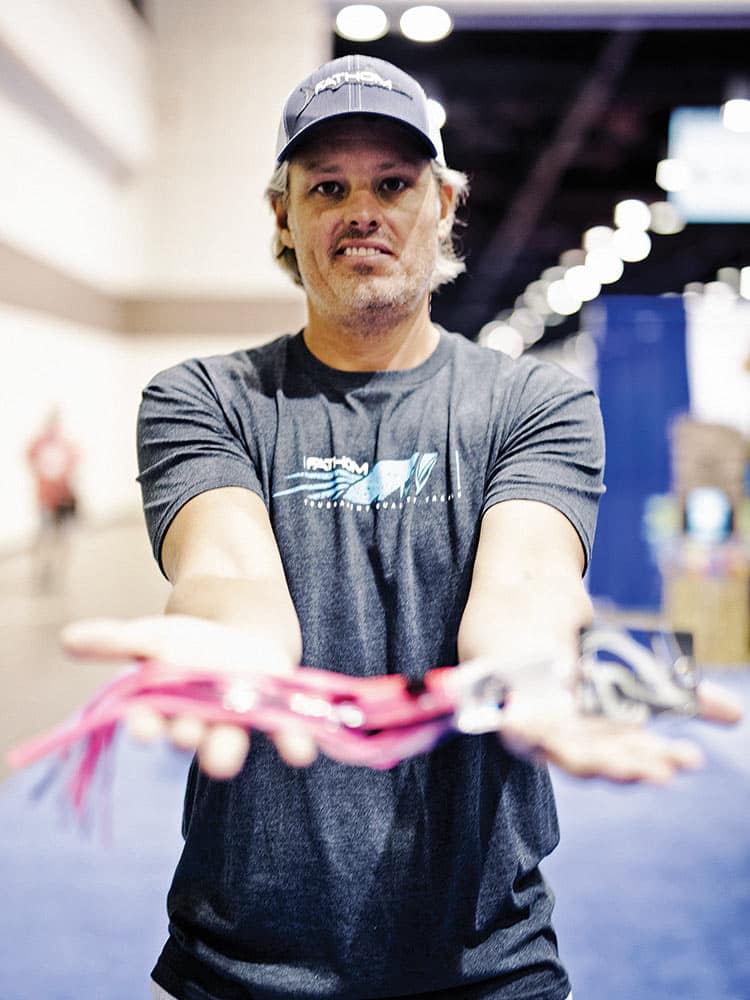
M: Were you born and raised in Florida?
Nope, I was born in Stone Mountain, Georgia, and moved to Gulf Breeze, Florida, in 1999. My father grew up in Pensacola, and I’d been going down there ever since I was a kid. I liked that area — it gave me access to do the things I wanted to do outdoors, like fishing.
M: You played baseball at a high level, right?
It feels like a lifetime ago now, but I played through college at NC State and UNC Charlotte, which led to pro ball for a couple of years after college. Then I blew out my shoulder for the first time in college and dealt with it again my second year of playing professionally.
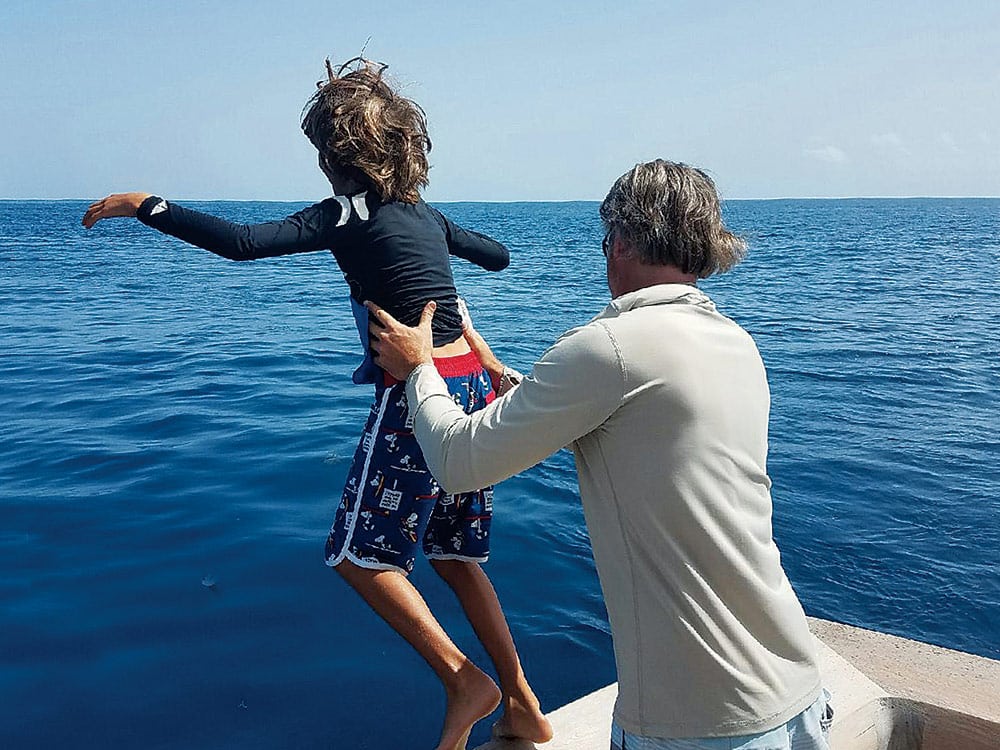
M: And you had planned on making baseball a career?
It was the only thing I knew. When you play from the time you’re 4 or 5 years old — regardless of whatever they tell you in college — making it professionally is always the plan.
M: Did you find time to fish when you were playing?
Oh yeah, any pond, puddle or stream that I passed by — I used to carry fishing rods on the team bus. One time, my grandfather had forgotten to give me back my rods after a fishing trip. He chased down the bus in his car, pulled in front and stopped us on the way to a game to give me back my fishing rods.
M: Did he introduce you to fishing for marlin and sails in the Panhandle?
No, I actually caught my first marlin in the Keys. I was down there for a little while, bartending at night and fishing during the day. I was dolphin fishing in my little 19-foot Key West, and I caught a small blue. Catching billfish wasn’t something I grew up with — my grandfather fished in fresh water.
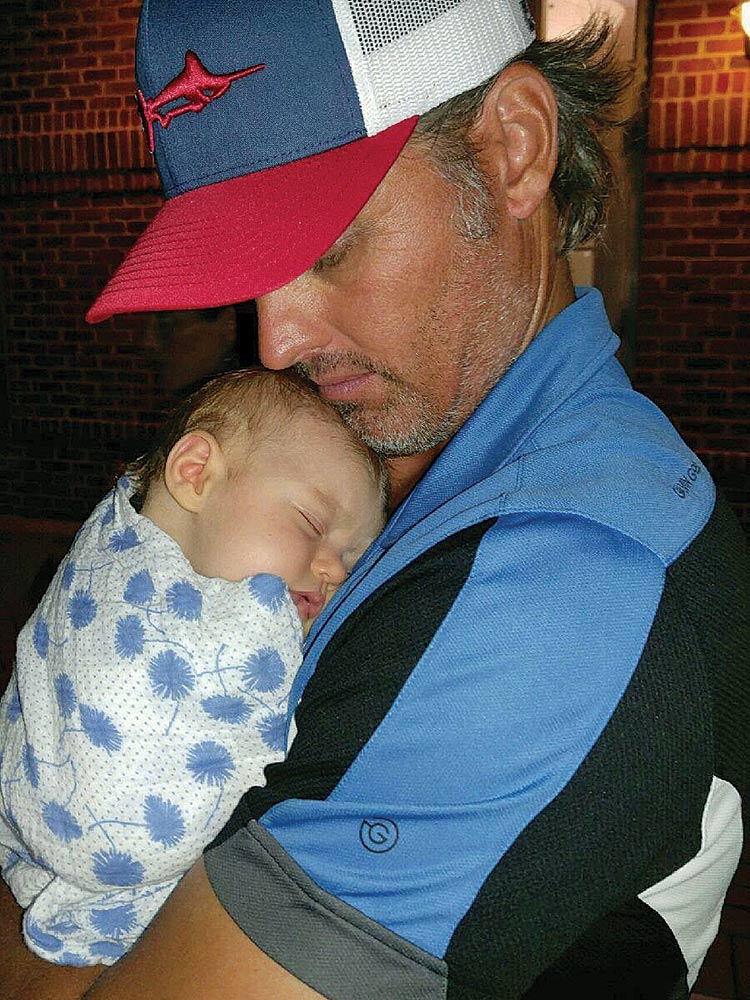
M: You’re the current chairman of The Billfish Foundation — how did you become involved?
I knew a gentleman named Bill Gooch, who was on the board at TBF, and he and I had talked about conservation and what was being done to further those goals. He came to me and said there was an open spot, and I told TBF that I was interested in becoming more involved.
M: Do you see increasing awareness in conservation these days?
People are more aware now than ever before. Twenty years ago, every marlin got thrown on the dock. It was a trophy, and you had to show your friends. Now, very few fish are taken, outside of tournaments. The next big step is how to properly handle a fish prior to release.
M: What are some of the changes you’ve been involved with?
I fish a lot of the Gulf Coast tournaments; I have for years, and it’s important to me. I felt like there was a lot of room for improvement to increase the minimum-size length for blue marlin. And it’s not like I don’t understand where the tournament directors are coming from: They want fish on the docks because it draws a crowd. But even for them, the ideal circumstance is not 10 dead fish. Ideally, you’d want only two or three really big marlin that wow the crowd and make a memorable impression on everyone.
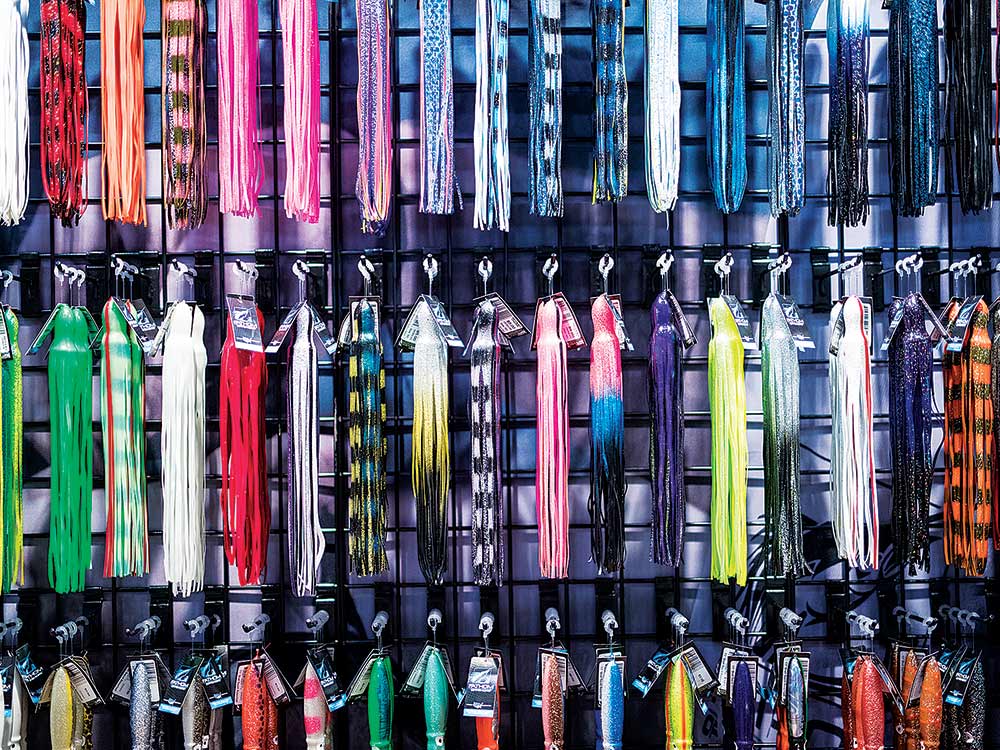
M: How else can we further enhance conservation efforts?
I want to remove inches from the equation. Tournaments should go to a minimum weight for marlin. It forces the owners, captains and crew to be more conservative. They’ll be less likely to take a chance on a marlin that might be under the minimum. It’s a touchy subject, but we all know people who will pull a fish aboard and measure it; if it doesn’t make it, they’ll push it back out the door. We want to eliminate deck-checking fish. The goal is not to eliminate the taking of marlin — that’s not what we’re advocating. It’s a more responsible way of going about it. When you take it, you own it. I’m tired of, “Oh, it’s a 107-inch minimum but we couldn’t tell, so we pulled a 105‑inch fish in the boat, and then slid it back out because it was under.” I want to eliminate that from tournament fishing.
M: Got anything else in the pipeline?
I would love to see something like what Chris Fischer is doing with shark tagging implemented with billfish. Who knows? Maybe that will be my next project. It’s going to happen, sooner or later.
